Contextual understanding Building Vocabulary Worksheets for Ages 4-8
9 filtered results
-
From - To
Introducing our "Contextual Understanding Building Vocabulary Worksheets for Ages 4-8," designed to enhance young learners' language skills beautifully. Our engaging and educational worksheets help kids understand words in various contexts, promoting critical thinking and reading comprehension. Perfect for preschoolers and early elementary students, these resources blend fun activities with essential learning objectives, allowing children to confidently expand their vocabulary. By using real-life situations and creative exercises, our worksheets make grasping new words enjoyable and effective. Give your child the tools to succeed in language development with Kids Academy's expertly crafted vocabulary resources!
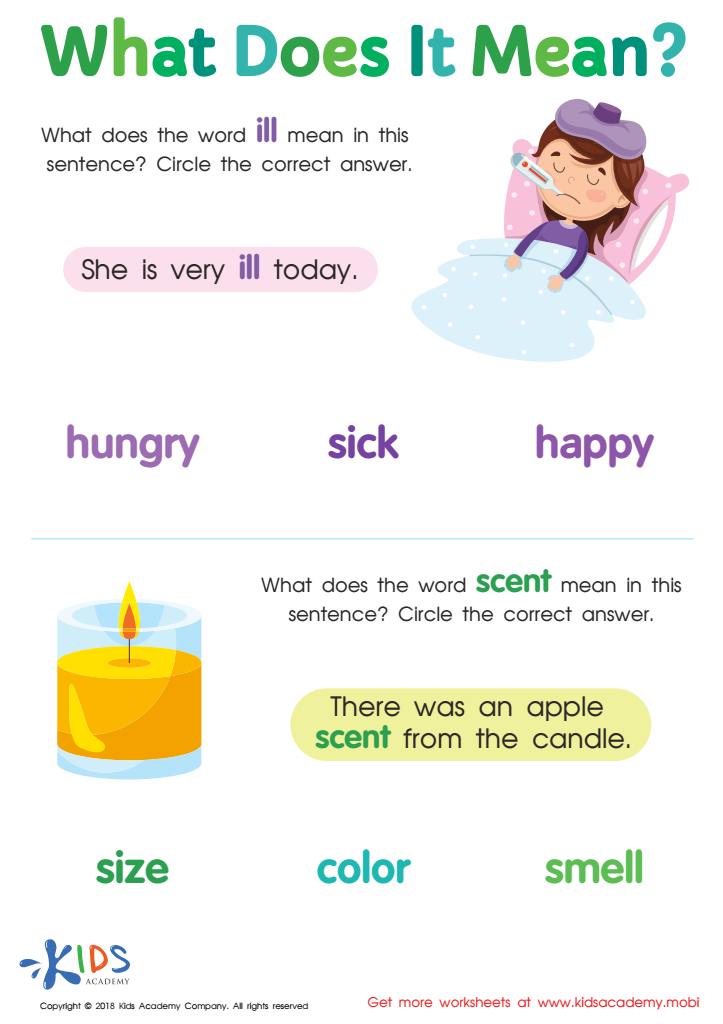

What Does It Mean? Worksheet
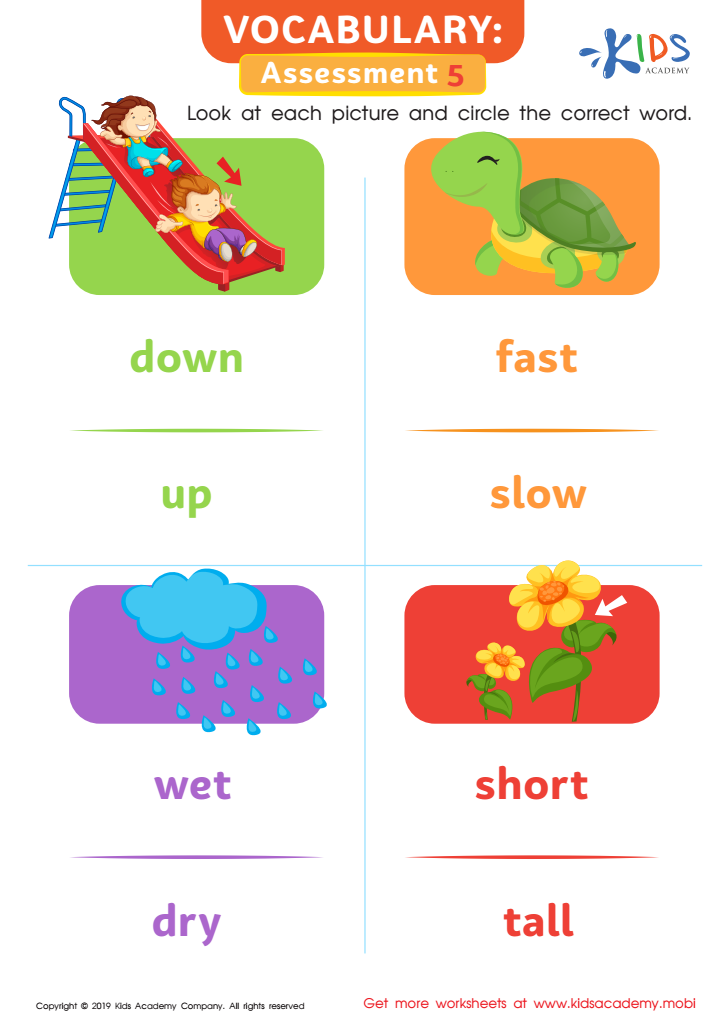

Vocabulary: Assessment 5 Worksheet
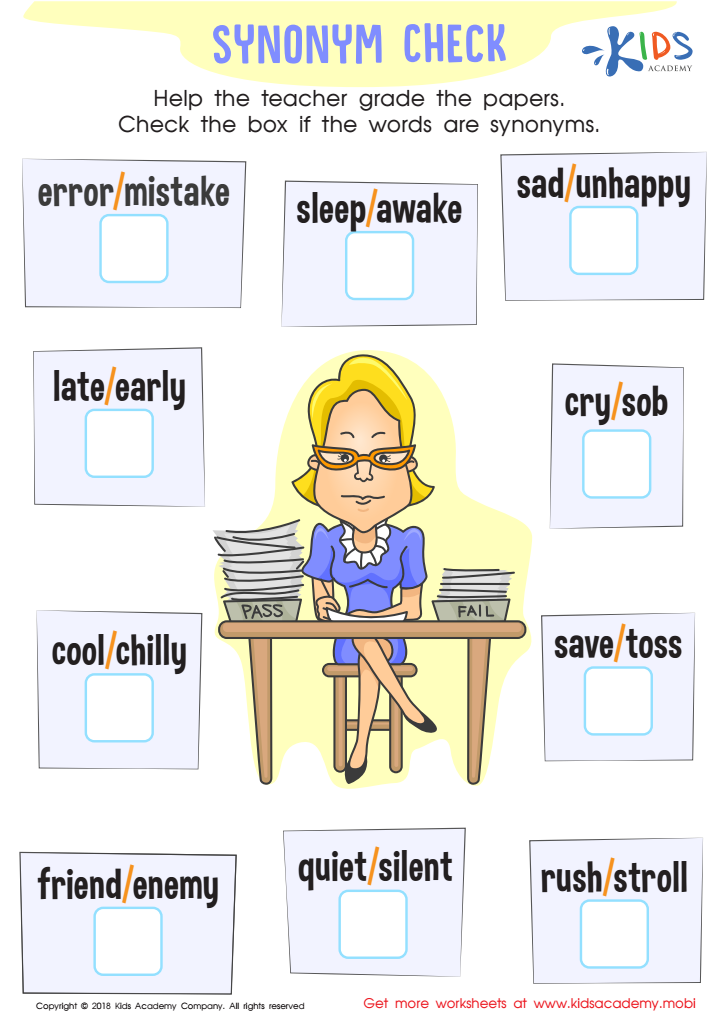

Synonym Check Worksheet
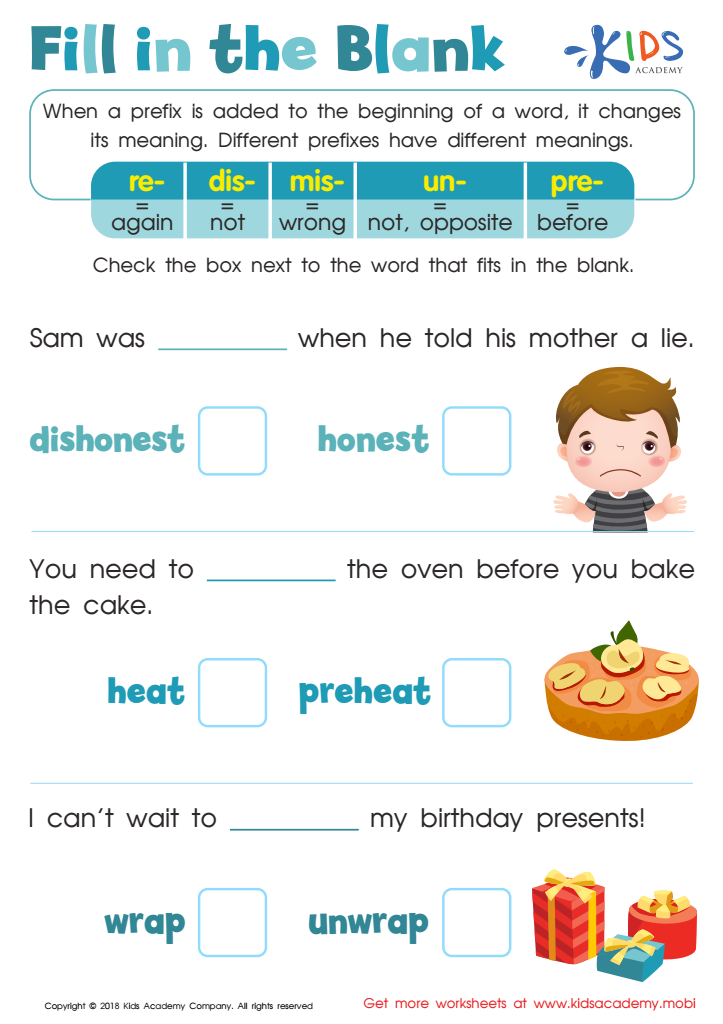

Reading: Fill in the Blank Worksheet
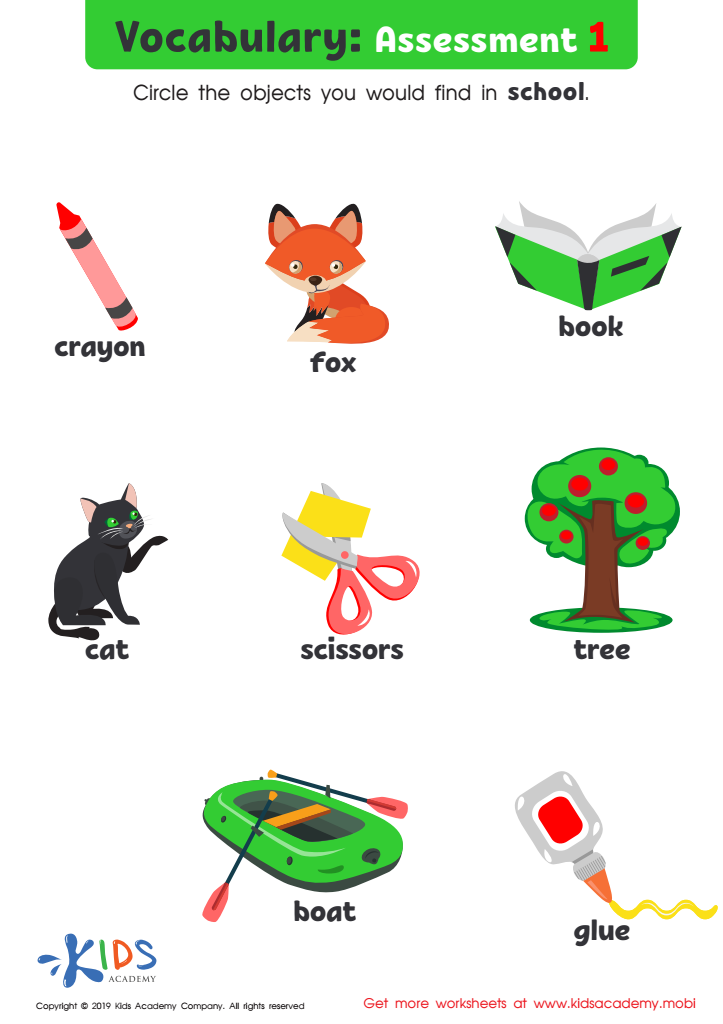

Vocabulary: Assessment 1 Worksheet
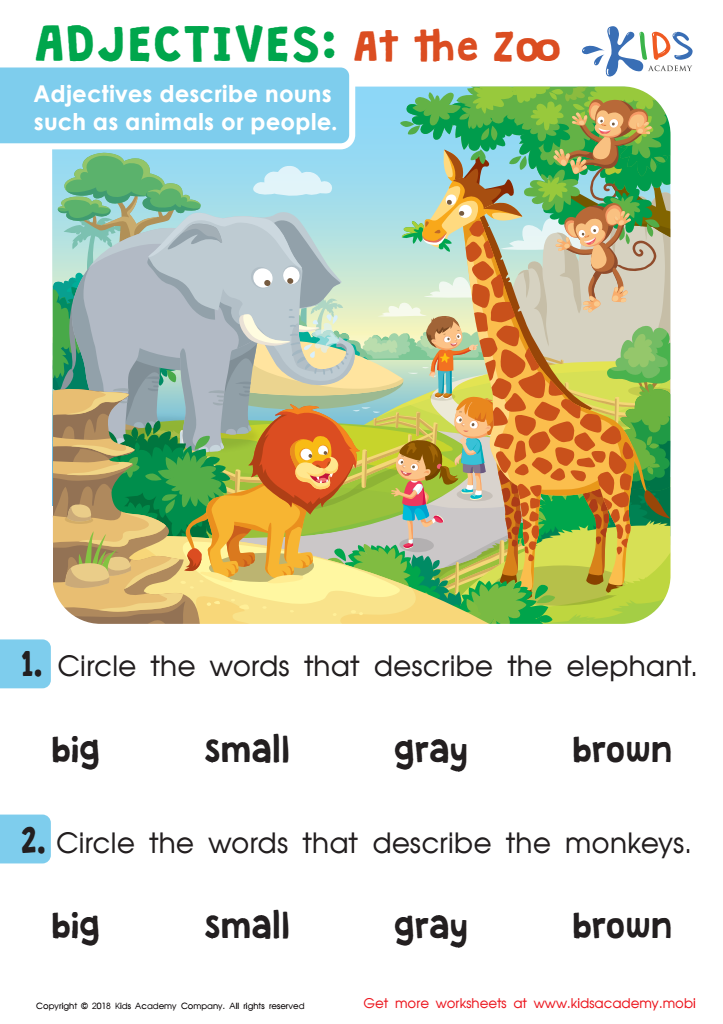

Adjectives: At The Zoo Worksheet
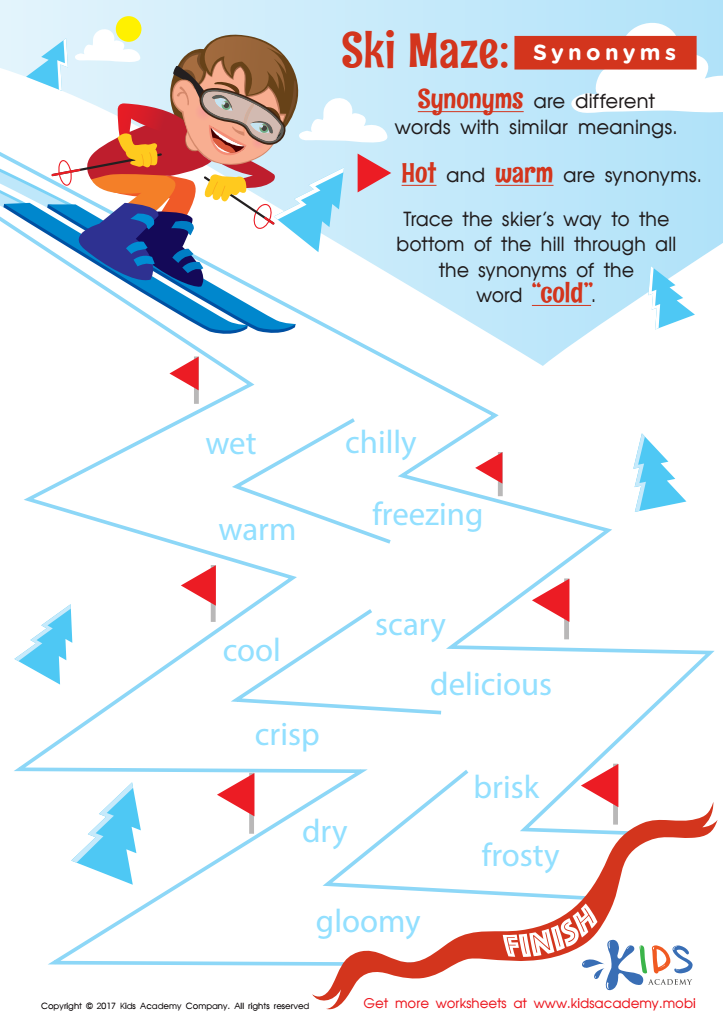

Free Printable Synonym Worksheet
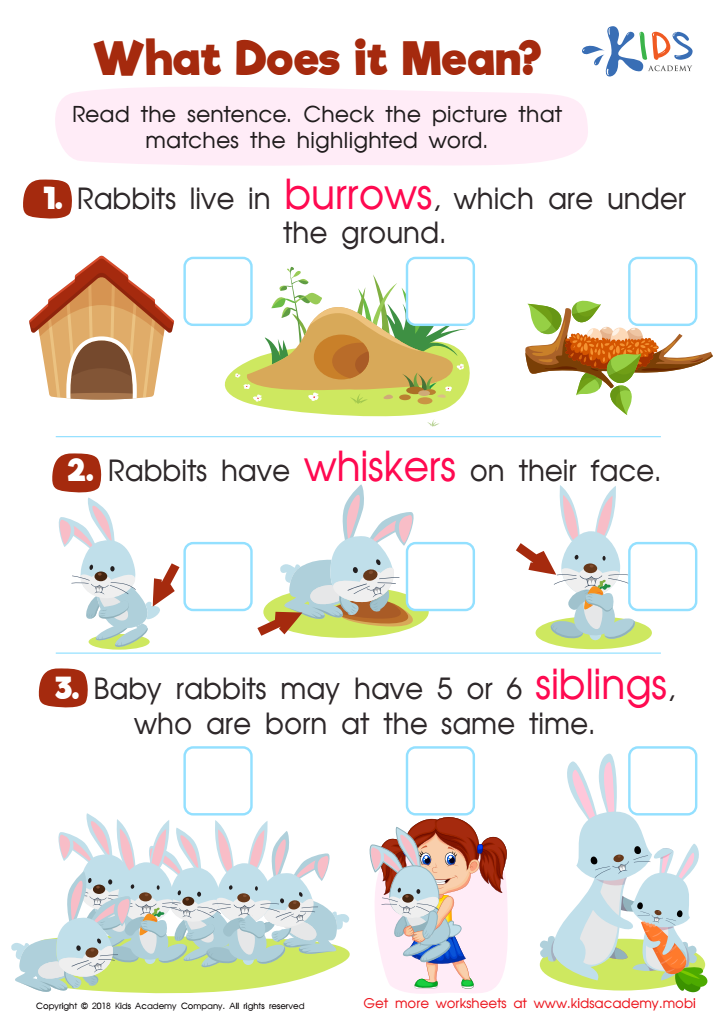

What Does It Mean? Worksheet
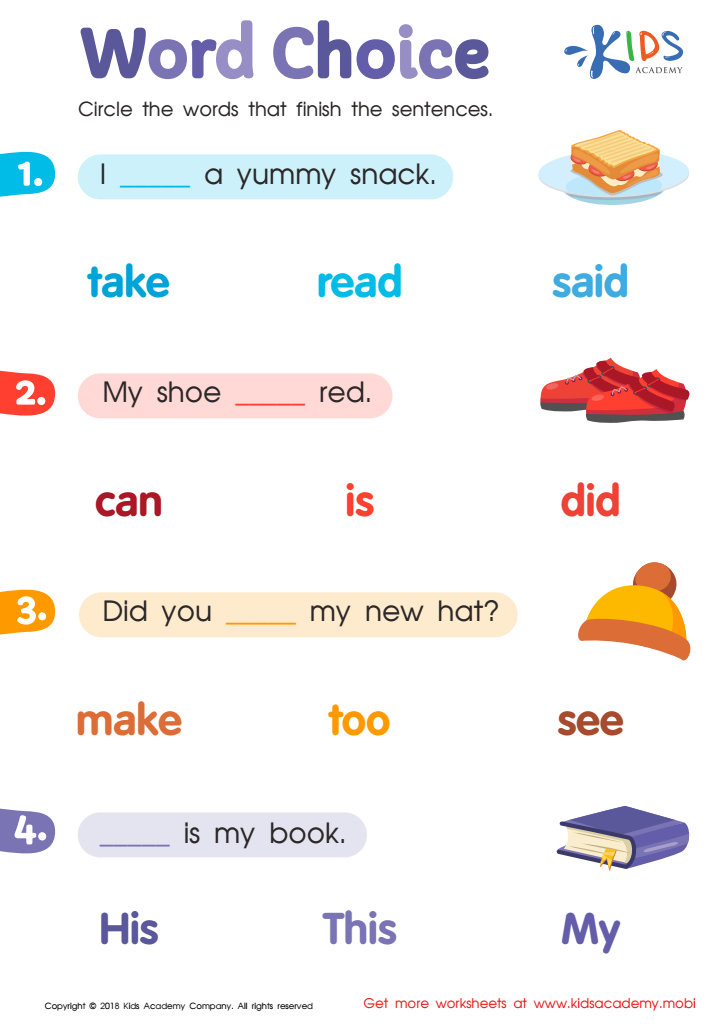

Word Choice Worksheet
Parents and teachers should prioritize building vocabulary with a contextual understanding for children ages 4-8 because it lays a critical foundation for their future learning and communication skills. During these formative years, children's brains are highly receptive to language development. When they learn vocabulary in meaningful contexts, they are better able to retain and apply new words. For example, learning the word "apple" by seeing, tasting, and discussing apples in various scenarios helps children understand its usage and relevance.
Contextual learning also enhances comprehension skills. When children grasp words within the framework of stories, conversations, and real-life situations, they can better infer meanings and connect new knowledge with existing concepts. This strengthens their cognitive abilities and nurtures a more profound understanding of their environment.
Moreover, a robust vocabulary supports academic success. It improves reading proficiency, encourages more expressive writing, and facilitates participation in classroom discussions. Effective communication skills cultivated during early childhood influence social interactions and relationships positively, fostering confidence and empathy.
Overall, nurturing vocabulary within context maximizes learning potential, enriches personal growth, and establishes a strong groundwork for future educational and life opportunities.
 Assign to My Students
Assign to My Students


























